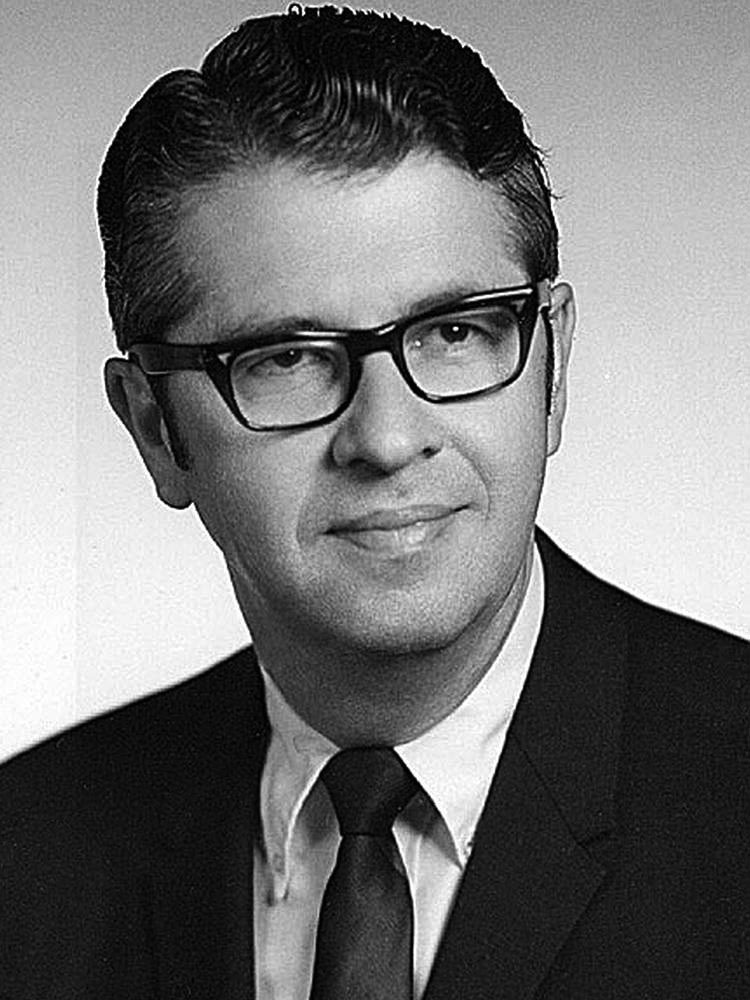Joseph Soshnik

Chancellorship Dates
October 1, 1968 - June 30, 1971
Born
February 14, 1920 - Omaha, NebraskaDied
November 22, 2002 - St. Louis, MissouriInterment
Chesed Shel Emeth Cemetery, Chesterfield, MissouriSources
- "Prairie University," Robert E. Knoll
Joseph Soshnik, the University of Nebraska-Lincoln's thirteenth chancellor, was in fact and in title, at the first and only 'president' of the University of Nebraska-Lincoln. The brief years in which he would serve were marked with difficulty on a national level, and a wrenching transition within the university.
Several years prior to the University of Nebraska's centennial, to be celebrated in 1969, the Municipal University of Omaha was faced with serious, even existential, financial stress. Faced with the prospect of the state's largest city being without some form of public higher education, other than the medical school, which the University had formed and located in Omaha early in the century, university administrators and state legislators began to see a potential solution in acquiring the Municipal University and forming a university system.
In this plan, the chancellor of the flagship institution in Lincoln would assume leadership of the system, and each institution in the system would be assigned an administrative leader, given the title of 'president.' Because of the difficult fiscal condition of the Municipal University, agreements were made hastily, and by July of 1968 the system was no longer an idea, it was a fact. Clifford Hardin's role as Chancellor was broadened in scope to encompass leadership of the new system, and presidents were appointed to lead each institution in the system. The position of dean of the Medical Center in Omaha, for the sixty years prior reporting to the Lincoln chancellor, was itself elevated to a president, and Hardin tapped Soshnik, a long-time deputy, to run the day-to-day operation of the institution in Lincoln.
By the end of Soshnik's term as administrative leader in Lincoln, the system had once again been reorganized, with the leadership titles of 'president' and 'chancellor' switched and the Lincoln institution, the original 'University of Nebraska,' administratively separated from the Medical Center. Whatever his qualities as a leader, and they were many, Soshnik's legacy is entwined with the wrenching change and reorganization attending the birth of the NU system.